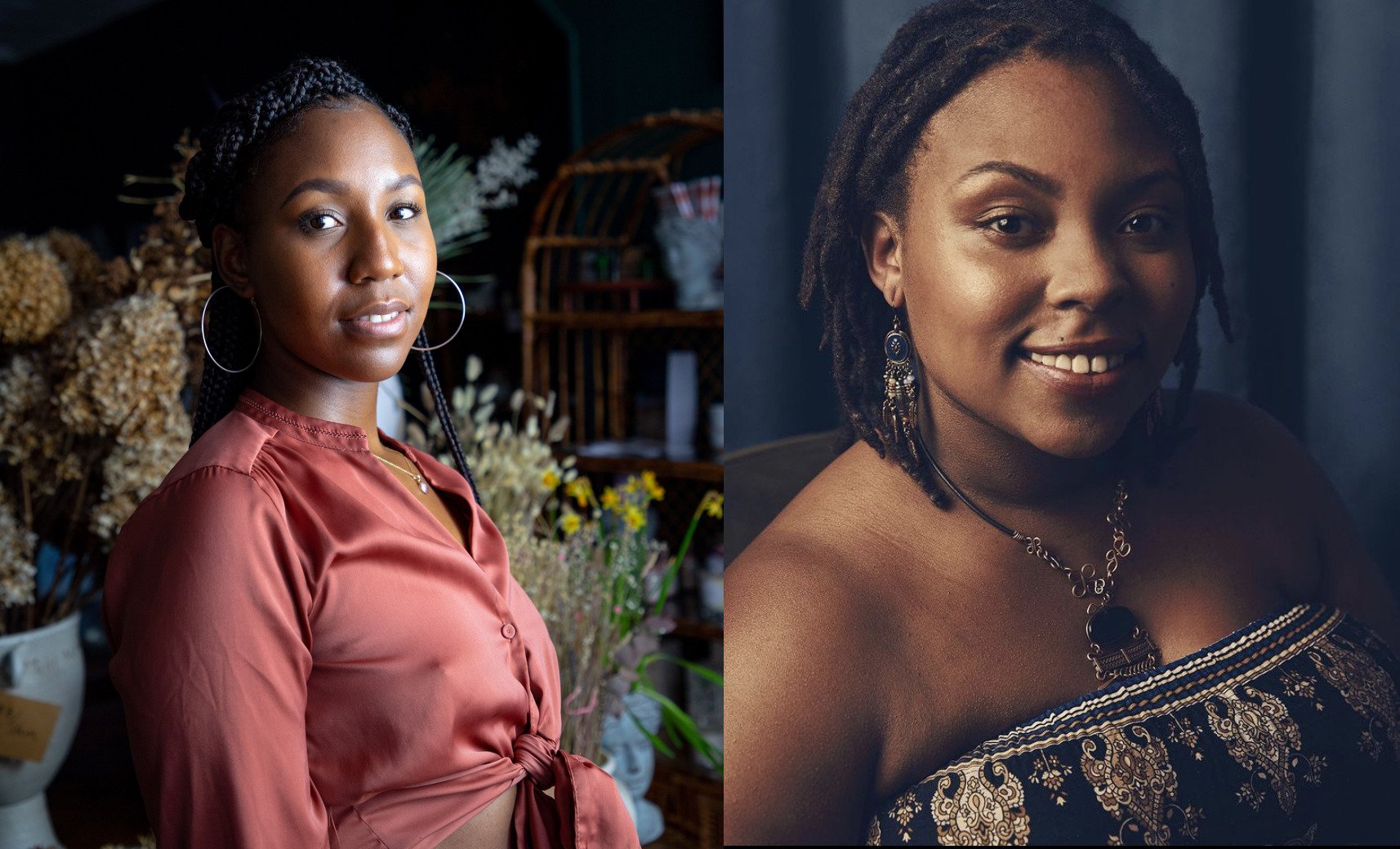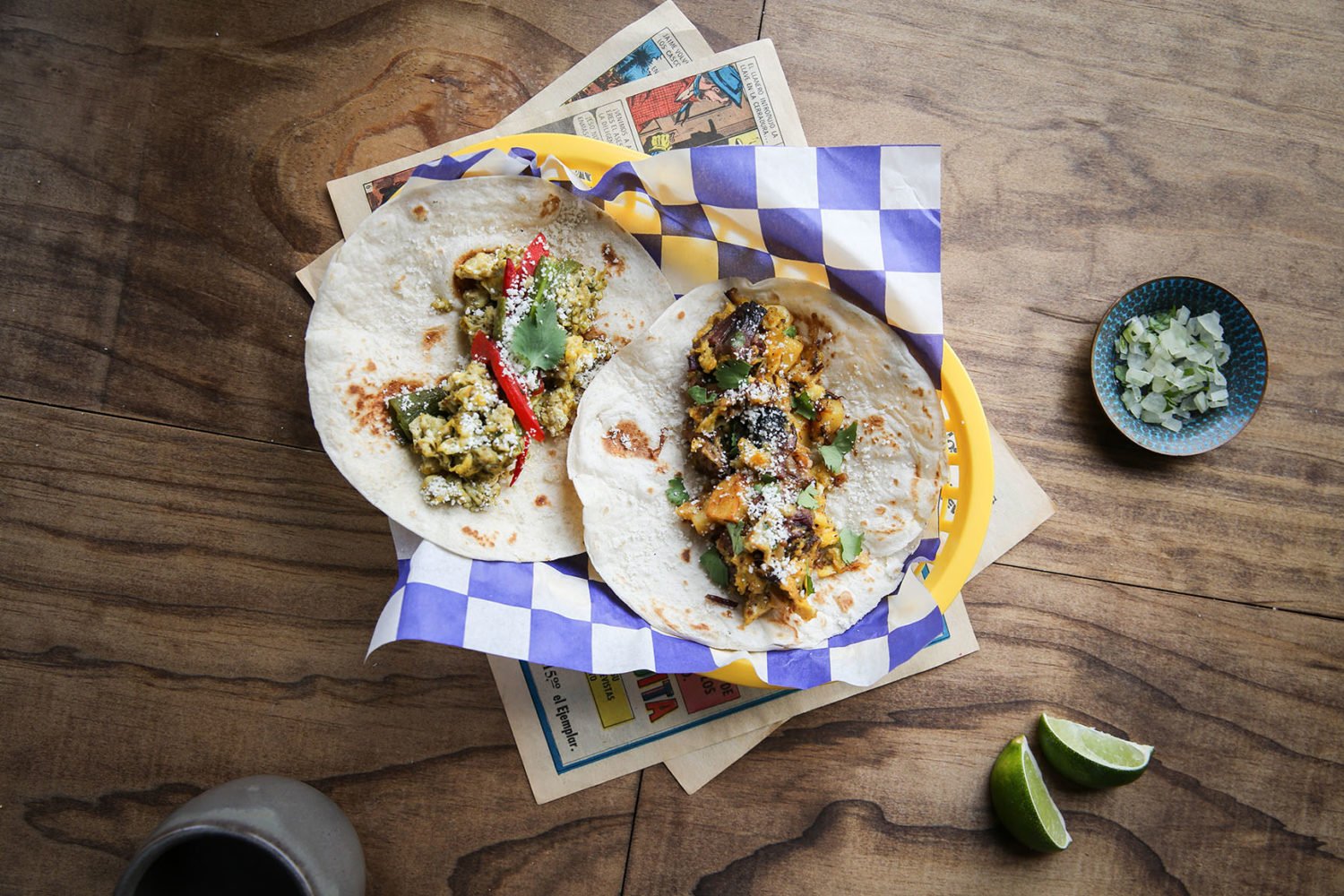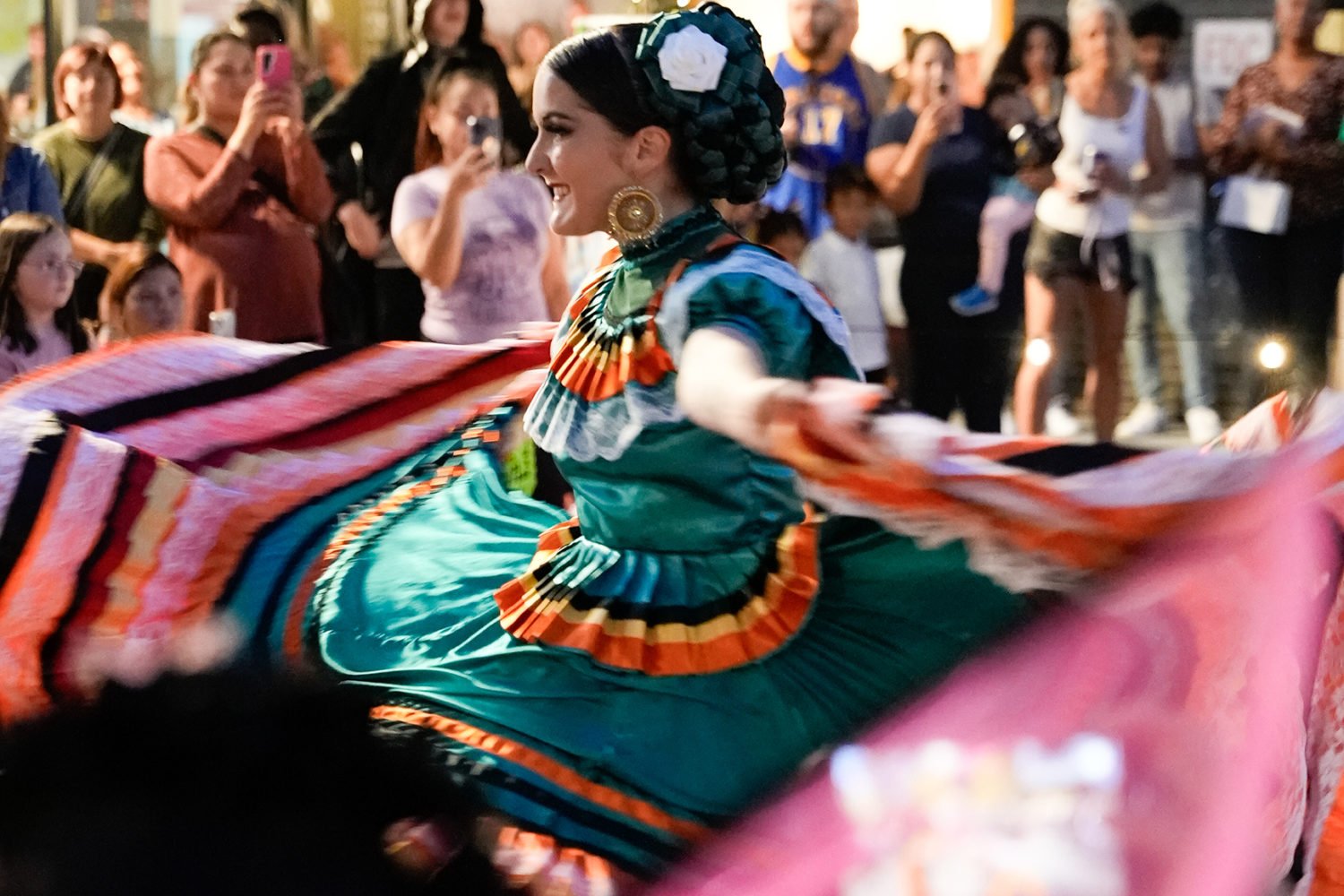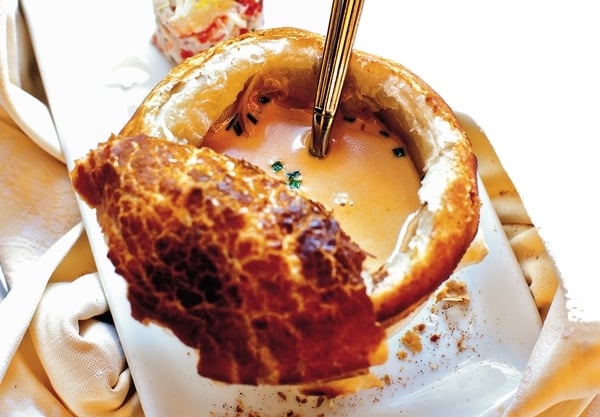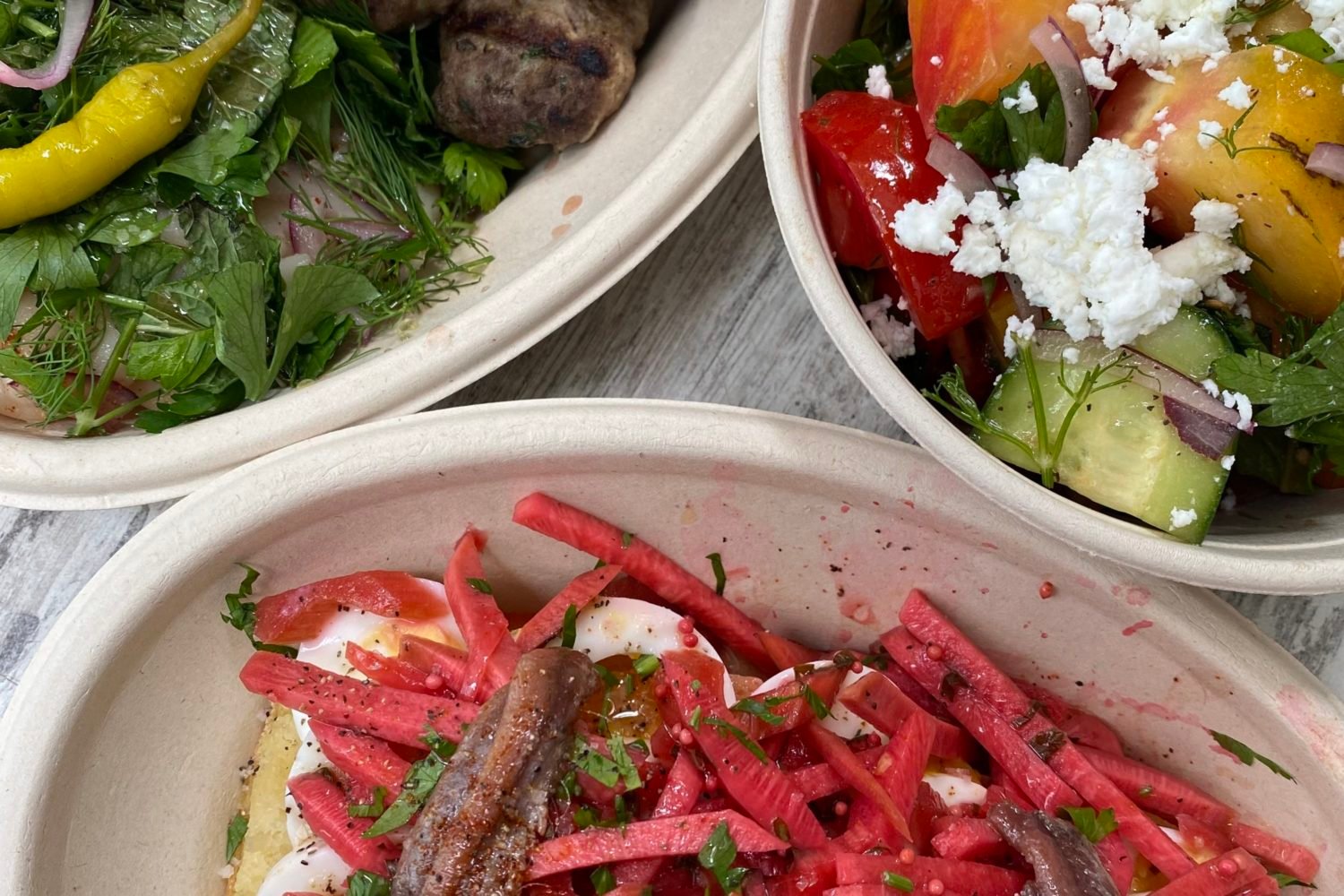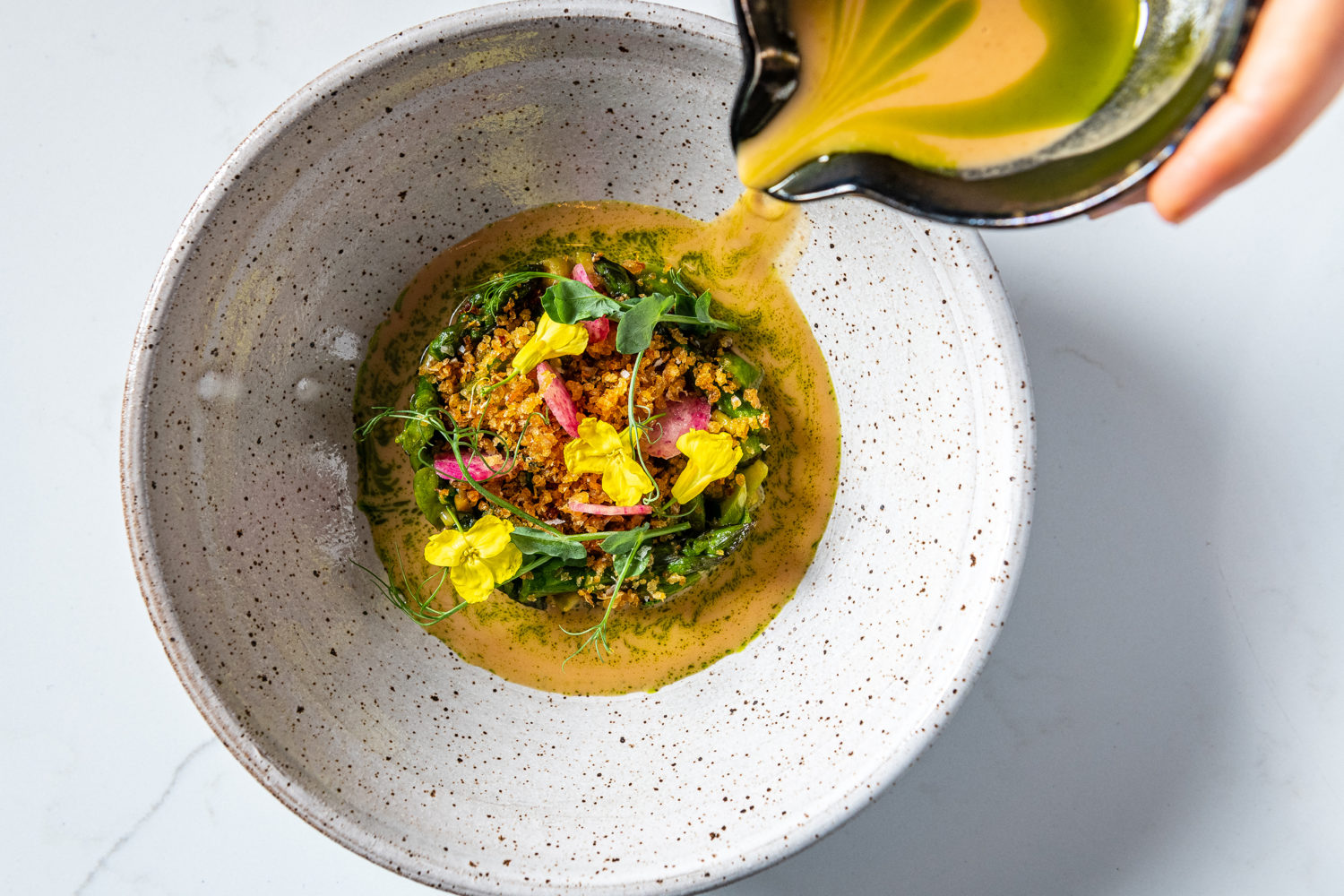Sommelier Erica Christian and Kapri Robinson, bartender and founder of cocktail competition Chocolate City’s Best are launching a BIPOC-focused event series dubbed Empowering the Diner to help consumers gain confidence in their personal palates while challenging established norms within a genus of beverage. First on the virtual table? A four-week wine workshop starting on May 21, highlighting the expertise of BIPOC pros like Bad Saint’s Amanda Carpenter and wine writer Julia Coney.
Christian and Robinson talked to Washingtonian about trusting your own taste and creating a space where BIPOC folx are at the center of the conversation.
What prompted the creation of this event series?
Erica Christian: I started developing this event when I was still working at Domestique and Emilie’s, and I had just left Tail Up Goat. I left there because being one of the only Black employees—and the only Black woman—working front of house and service for my whole two years, I was just really discouraged about how I rarely got to serve members of my community, and didn’t get to work with members of my community. I did see some of the gatekeeping practices I was being taught to uphold.
This is very personal for me. I actively went through the motions where I was constantly being disserviced by the wine world. During my entire time in DC, every single place I’ve worked at, I’ve faced obstacles as a Black woman.
Kapri Robinson: I believe this work is super important to start to create a sense of belonging in this industry. There are so many people that are BIPOC folks, especially women of color, who do not feel like it’s their place when they’re going through education or sitting in certain beverage clubs, beverage meetings, and not feeling like they belong.
How does this series go beyond the idea of just having a seat at the table?
Christian: Say you’re in high school, you walk into the lunch room, and you want to sit with people and they say no. Do you keep trying to sit with them? What does that do to you? How does that make you feel as a human being?
I don’t want to sit at their table—I want my own. But I want that same sense of mainstream validity where what I’m talking about matters, even though it’s coming from a person that you decided doesn’t matter or shouldn’t be involved in the conversation.
What does the event series itself entail?
Robinson: It’s going to be a four-week-long series. Each session is going to be accompanied with a bottle of wine; you get get into different sessions with a BIPOC-focused speaker, who is also very versed in the wine world. Each of the sessions comes with a special chef custom recipe that they are making for that specific bottle of wine.
One of my favorite parts about it is that you will have a tasting grid, and the big thing about this tasting grid—and something huge for me about Empowering the Diner in general—is that we will be encouraging people to tell us what they taste. Not what they think they should be taste. Not what the somm might have told them. Literally what memories the wine brings to them and write it down. We hope to be able to collect those to start a whole different world of tasting notes that is outside of what we see now, which is pretty much Eurocentric tasting.
How does stepping out of those parameters, which feel so entrenched in the world of wine and beverages, translate into a better guest experience in the dining room?
Robinson: I find many times that there are times that people are intimidated about who is on the other side of the bar. Or, the person on the other side of the bar doesn’t have the patience to sit through a beginner’s tasting knowledge. What we’re empowering here is for people to start engaging more in those conversations so that they’re enjoying more of what they like, and not what they think they should be drinking.
Christian: I want people to say, ‘I know what I like, I want this. Thank you for your suggestion, but this is what I will be having.’ When we’re talking about pulling away from these Eurocentric or, as I like to say, colonizer-led perspectives, we want to pull away from the amount of harm that perspective has done. That’s not the perspective we should be uplifting in the world.
We as beverage professionals have conversations about racism in food and beverage all the time, but how often does that connect to the guests and where they spend their money? How often do the gatekeeping practices that we’re trying to combat for ourselves trickle down to the guests as well? No one knows more about what you like personally [more] than you. So why not empower you?
Right—one of the things about the word empowerment is the idea that it’s not just about about power, but also a sense of authority.
Christian: We wanted to make sure we had an event that was BIPOC-focused with a focus on our perspectives because part of that empowerment is feeling a sense of autonomy, and being able to bring yourself to the table fully.
If you have a cultural background that does not relate to everyone else in the room, we’re not looking at you like, “Oh, well, you don’t belong here.” We’re saying,
“Wow, we welcome your perspective because that adds to the world of wine itself.”
I really think it’s important that we pour ourselves into creation and into our experiences. This is about dismantling as resistance. Building something that is inherently in resistance to those systems, so that people can feel comfortable in breaking that down.
This interview has been edited and condensed.

